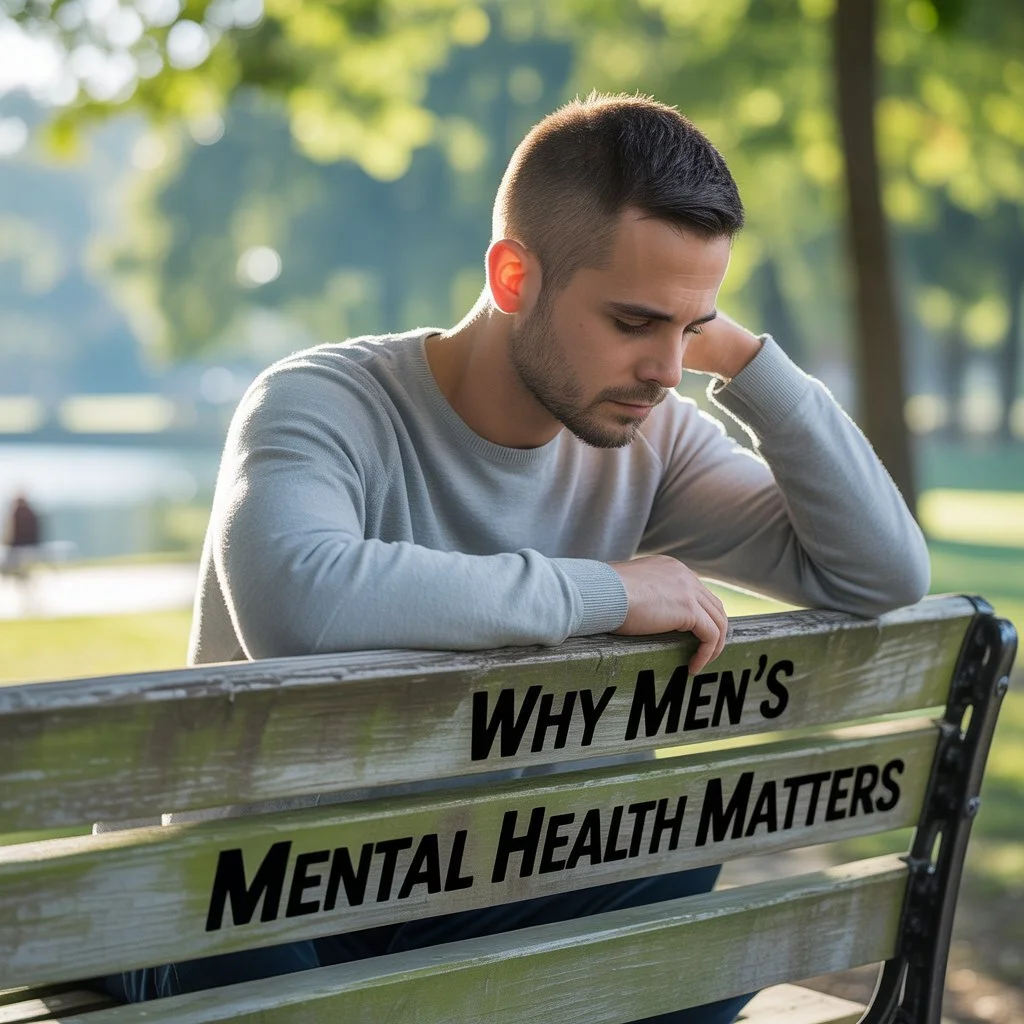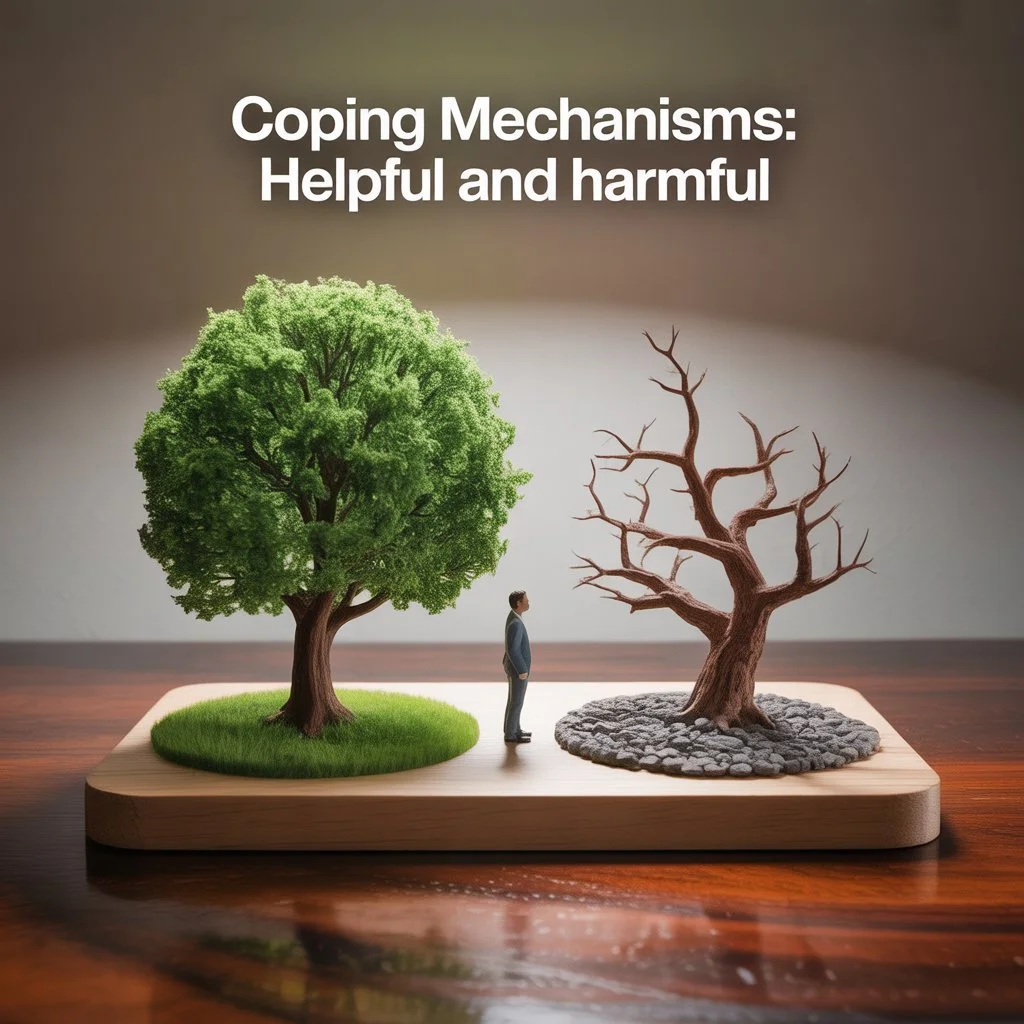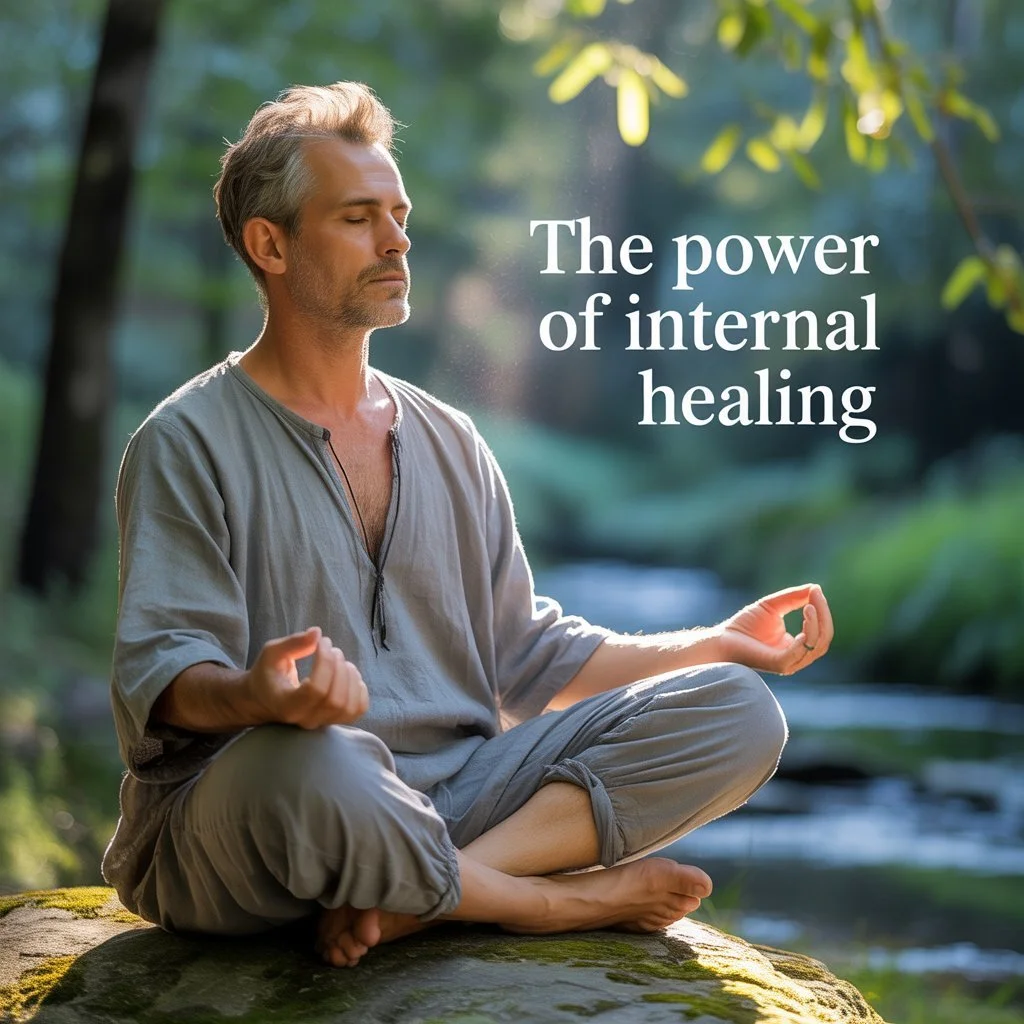Why Men’s Mental Health Matters
Table of Contents
Intro
Breaking the Silence on Men’s Mental Health
From Trauma to Self-Awareness
Coping Mechanisms: Helpful and Harmful
The Role of Spirituality in Healing
The Power of Internal Healing
Love, Intimacy, and Emotional Needs
You’re a Soul with a Body: A Spiritual Perspective
Safe Spaces and Vulnerability
Why You Should Listen to This Episode
Conclusion
Why Men’s Mental Health Matters
Many men grow up believing that showing pain or vulnerability is a weakness. From a young age, they are told to “man up,” to hide their emotions, and to carry burdens in silence. But silence does not heal. Instead, it deepens the struggle, leaving men disconnected from themselves and the people around them.
In this episode of On the Spectrum Empowerment Stories, host Sonia Chand sits down with Aaron Ash, who opens up about his own journey through trauma, self-discovery, and healing. Aaron shares how he learned to stop running from pain and instead face it with courage, ultimately redefining what it means to live authentically as a man.
This blogpost will walk through Aaron’s most powerful insights, exploring men’s mental health, the role of spirituality, and why doing the inner work is so essential.
Breaking the Silence on Men’s Mental Health
For generations, many men have grown up under the weight of cultural expectations that demand strength, toughness, and emotional control. From childhood, boys are often told to stop crying, to toughen up, and to never show weakness. These messages can become deeply ingrained, leaving men with the belief that admitting to pain or struggle makes them less masculine.
Aaron challenges this narrative by reminding men that they deserve safe spaces where they can speak honestly about what they are going through. Struggles with mental health, trauma, or loneliness should not be hidden behind a mask of toughness. When men are encouraged to share their stories without fear of judgment, they discover that vulnerability is not weakness but a doorway to healing.
The importance of breaking this silence cannot be overstated. When men keep everything inside, they often end up feeling isolated and disconnected from others. That isolation can worsen anxiety, depression, or destructive behaviors. On the other hand, finding spaces where they can be heard, whether in therapy, community groups, or honest conversations with trusted friends, creates a sense of belonging and hope.
Aaron’s message is clear: real strength is found in honesty and connection. By speaking up, men not only heal themselves but also create a ripple effect, showing others that it is safe to open up as well.
From Trauma to Self-Awareness
Aaron’s story begins with a childhood marked by complex trauma and difficult family dynamics. Like many people who grow up in environments filled with instability, he learned to carry wounds that shaped his sense of self. These early experiences left him with pain that often showed up in ways he did not fully understand until much later in life.
For years, Aaron searched for healing in the world around him. He pursued work, relationships, and external success, hoping that achievement or connection would fill the emptiness inside. But no matter how much he accomplished, the unresolved pain remained. This is a common cycle for many people who live with unhealed trauma: the belief that fixing the outside world will fix the inside too.
The real turning point came when Aaron realized that nothing external could truly mend the inner wounds he carried. True healing required a shift inward. It was not about ignoring the outside world but about finally addressing the internal struggles he had long tried to avoid.
As Aaron described it, “Once I began my healing journey and took the brave step of turning the mirror inwards, the real magic began.” This powerful statement captures the essence of his transformation. Healing was not about running from pain but about facing it directly and allowing self-awareness to become the foundation of growth.
By choosing to confront his past rather than bury it, Aaron discovered that self-awareness opens the door to resilience, forgiveness, and personal freedom. His story reminds us that the hardest but most important work we can do is within ourselves.
Coping Mechanisms: Helpful and Harmful
When people carry deep wounds, they often look for ways to cope with the pain. For Aaron, this journey included both harmful and helpful strategies. His story shows how the methods we choose can either prolong suffering or guide us toward healing.
In his earlier years, Aaron leaned on harmful coping mechanisms. He sought love and validation through physical intimacy, hoping that closeness with others would quiet the ache inside. Instead of bringing relief, these choices only masked the pain for a short while. At the same time, he often suppressed his emotions rather than facing them. Pushing feelings down created an inner pressure that built up over time, leading to even more confusion and exhaustion.
The shift began when Aaron discovered healthier practices that grounded him. Exercise became a way to release stress and reconnect with his body. Martial arts, especially kung fu, gave him structure, discipline, and a sense of empowerment. Meditation and the teachings of Buddhism helped him sit with his emotions instead of running from them. These practices became tools for transformation, allowing him to move through pain with greater awareness and strength.
The lesson Aaron highlights is clear: coping methods can take us in two very different directions. Some drag us further into cycles of avoidance and emptiness, while others give us the chance to rise above challenges and find true balance. Choosing the latter is not always easy, but it makes all the difference in creating a life that feels whole and authentic.
The Role of Spirituality in Healing
For Aaron, true healing did not come only from physical practices or external changes. It came when he began to connect with something deeper: spirituality. His journey reminds us that healing is not just about treating the mind and body, but also about nurturing the soul.
Spirituality provided Aaron with a framework to make sense of his pain. Instead of seeing trauma as a weight that defined him, he began to understand it as part of a larger journey of growth. Through spiritual exploration, he found meaning in the struggles he faced and discovered that even suffering could open the door to transformation.
One of the most powerful shifts for Aaron came from practices like meditation and mindfulness, which allowed him to slow down and truly listen to his inner self. He learned to sit in silence, observe his thoughts, and connect to a sense of peace that was not dependent on external circumstances. These spiritual practices helped him recognize that his worth did not come from achievements, relationships, or material success, but from the essence of who he already was.
Spiritual teachings also gave Aaron a language for compassion and forgiveness, both for others and for himself. Carrying trauma often comes with feelings of guilt, shame, and resentment. By turning to spirituality, Aaron learned to release some of these burdens and replace them with a greater sense of acceptance.
The role of spirituality in Aaron’s story shows us that healing is multi-layered. It is not enough to simply push through life with strength or distract ourselves with temporary fixes. True restoration requires looking inward, connecting to something larger than ourselves, and allowing the soul to guide the path forward.
The Power of Internal Healing
One of the most profound lessons Aaron shares is that real change begins within. He puts it simply: “You’re the only part of your story that you get to write.” While external circumstances, family histories, and cultural expectations may shape us, they do not have to define the final outcome of our lives.
Internal healing begins with reframing the story. Instead of seeing trauma as something that permanently damages us, Aaron views it as an invitation to grow stronger and more self-aware. This shift in mindset changes the way we carry our pain. It does not mean ignoring what happened, but it does mean deciding how we respond moving forward.
Of course, doing inner work is not easy. Facing trauma often feels terrifying because it requires us to revisit painful memories and emotions we have long tried to bury. Many people avoid this process because it feels safer to stay busy, distracted, or disconnected. But Aaron explains that avoiding the work only prolongs the suffering.
The reward of inner healing is freedom. When you stop running from yourself, you begin to experience peace. Growth happens when you take ownership of your story, release what no longer serves you, and choose to write a different ending. Aaron’s journey is a reminder that healing is not about fixing a broken self but about uncovering the strength, resilience, and wholeness that was there all along.
Listen to the full episode here.
Love, Intimacy, and Emotional Needs
Another key part of Aaron’s story is his evolving understanding of love. For many years, he believed that physical intimacy was equal to love. Like many men, he sought comfort and connection through physical relationships, hoping that they would fill the deeper emptiness he felt inside. But instead of fulfillment, these experiences often left him feeling more isolated and misunderstood.
Aaron realized that love and intimacy are not the same. Physical closeness can be meaningful, but without emotional connection, it can feel hollow. True intimacy requires vulnerability, trust, and openness, qualities that cannot be substituted by physical acts alone.
This misunderstanding carried a heavy impact on Aaron’s well-being. Mistaking intimacy for love meant that he continued searching outside himself for validation, rather than cultivating the emotional connection and self-acceptance he truly needed. It created cycles of disappointment and reinforced feelings of emptiness.
The lesson Aaron draws from this experience is powerful: healing requires more than physical closeness. It requires emotional connection. Real love is not just about bodies coming together, but about souls meeting in authenticity. Only when he began to understand this distinction was Aaron able to move toward healthier relationships that nurtured him at every level — body, mind, and spirit.
Listen to the full episode here.
You’re a Soul with a Body: A Spiritual Perspective
One of the most transformative insights Aaron shares is the idea that we are not bodies with souls, but souls that happen to be living in a body. This perspective shifts the way we see ourselves and our purpose in life. If the body is just the vessel, then our true identity is spiritual in nature.
This belief carries important implications. Instead of prioritizing material status, appearance, or possessions as the source of self-worth, Aaron emphasizes the importance of nurturing spiritual health. The body and the mind matter, but the soul is the foundation. When spiritual well-being is ignored, even the most successful life can feel empty.
Aaron frames well-being as a three-part balance: caring for the body, nurturing the mind, and feeding the soul. Caring for the body means exercise, rest, and physical nourishment. Nurturing the mind means learning, self-awareness, and mental resilience. Feeding the soul means practices like meditation, prayer, connection to nature, or any activity that reminds us of the deeper meaning of life. When all three are aligned, a person experiences harmony, purpose, and peace.
For Aaron, this shift from material to spiritual identity was liberating. It allowed him to stop chasing external validation and instead focus on becoming grounded in who he really is — a soul on a journey of growth and healing.
Safe Spaces and Vulnerability
Alongside personal healing, Aaron highlights the role of community and safe spaces in recovery. He advocates for environments where people are not judged or silenced, but deeply listened to. Healing begins when someone feels that their story matters and that their pain is heard without criticism or dismissal.
For men in particular, this is vital. Many grow up being told to hide their emotions or “man up” when they feel pain. Over time, this cultural conditioning creates walls that keep them isolated and disconnected. Aaron insists that breaking this cycle starts with vulnerability, the courage to speak openly and honestly about struggles.
The role of community cannot be overstated. A safe, nonjudgmental space offers validation and empathy. When someone listens with compassion, it helps release the burden of silence. This connection creates a sense of belonging and shows that healing is not a solitary process.
Why does this approach work? Because empathy and validation dismantle the belief that we are alone in our suffering. When men and women experience true listening, it becomes easier to face wounds, to stop masking, and to move toward authentic growth. Aaron’s vision is a world where vulnerability is seen not as weakness but as a doorway to strength and transformation.
Why You Should Listen to This Episode
There is something powerful about hearing someone’s story in their own voice. Aaron’s journey of healing and self-discovery carries a level of authenticity and emotion that written words alone cannot fully convey. His willingness to speak openly about pain, vulnerability, and transformation makes this episode a rare and valuable listen.
What makes the conversation even more impactful is the way it blends different perspectives. Aaron does not only share personal experiences but also weaves in spiritual insights, philosophical reflections, and practical tools for navigating trauma. This combination makes the episode both deeply human and highly actionable.
If you have ever wondered what authentic healing looks like, or if you know someone who is struggling to reconcile pain with growth, this episode is for you. It offers both hope and clarity.
Listen to the full episode here.
Conclusion
At its heart, this conversation with Aaron Ash reminds us that true healing begins within. It requires looking inward, embracing the soul, and recognizing that we are much more than the bodies we live in.
The key message is simple but powerful: men’s mental health matters. Vulnerability is not weakness but strength, and spiritual growth can bring the balance and peace that so many long for.
If you are searching for inspiration to begin your own healing journey, do not miss this powerful conversation with Aaron Ash. It may be the encouragement you need to take the first step toward self-awareness, wholeness, and inner peace.




